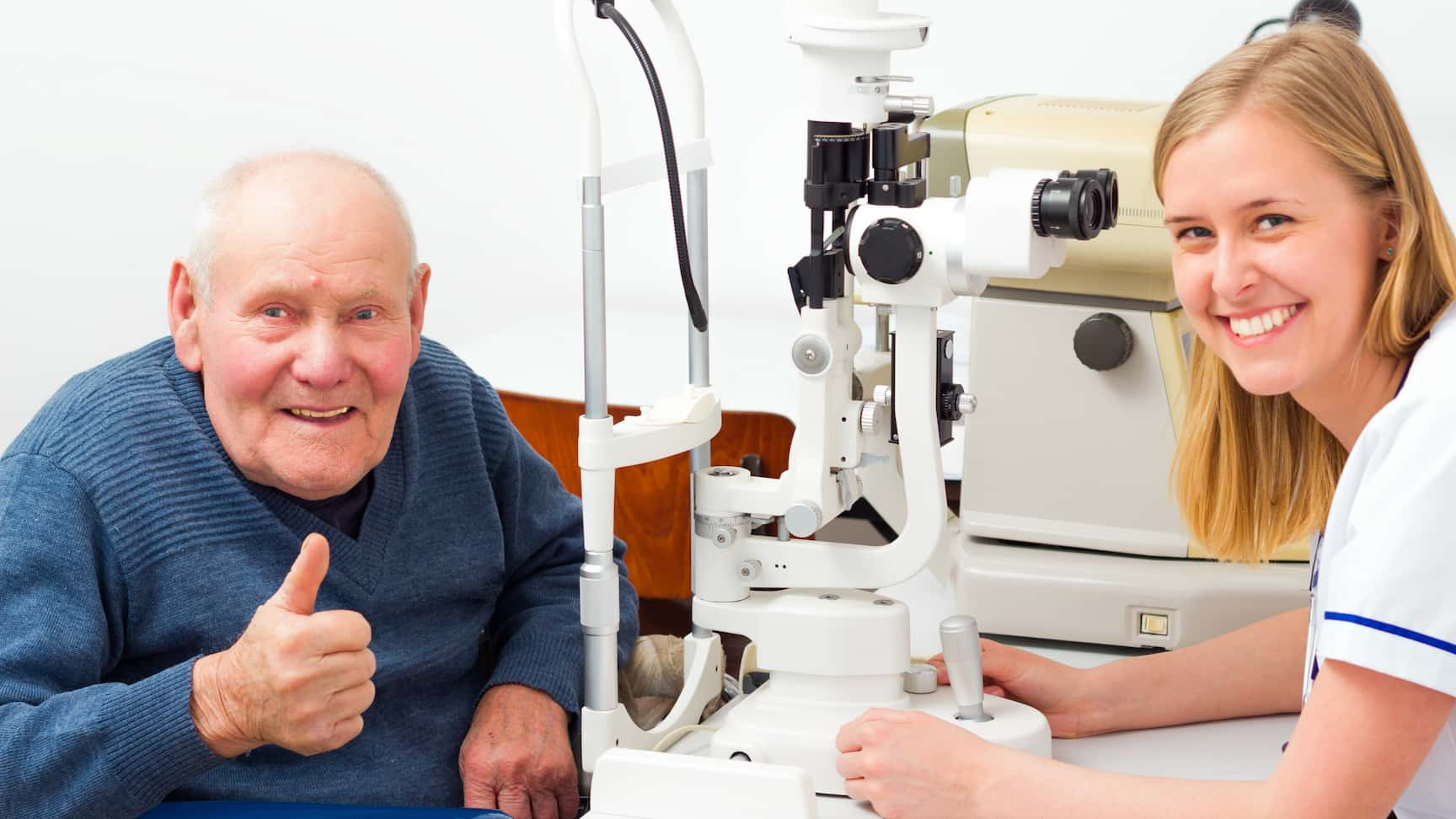Presbyopia Treatment in Turkey
Healthy Türkiye helps you find the best presbyopia treatment in Turkey at affordable prices and adopts a 360-degree service approach in all areas of health through affiliated hospitals.
- Medical Treatment
- Eye Surgery in Turkey
- Corneal Transplant in Turkey
- Lasik Eye Surgery in Turkey
- Retinal Detachment Treatment in Turkey
- Cataract Surgery in Turkey
- Astigmatism Treatment in Turkey
- Oculofacial Plastic Surgery in Turkey
- Ptosis Treatment in Turkey
- SBK Surgery in Turkey
- Dermatofibromas Removal in Turkey
- Glaucoma Surgery in Turkey
- Ocular Prosthesis in Turkey
- Retinoblastoma Treatment in Turkey
- Uveitis Treatment in Turkey
- Vitrectomy in Turkey
- Eye Muscle Surgery in Turkey
- PRK Surgery in Turkey
- Phacoemulsification Surgery in Turkey
- Pneumatic Retinopexy Surgery in Turkey
- Presbyopia Treatment in Turkey
- Refractive Surgery in Turkey
- Scleral Buckling Surgery in Turkey
- Strabismus Surgery in Turkey
- Extracapsular Cataract Extraction Surgery in Turkey
- Squint Surgery in Turkey
- Excimer Laser Surgery in Turkey
- LASEK Surgery in Turkey
- Homepage
- Medical Treatment
- Presbyopia Treatment in Turkey

About Presbyopia Treatment in Turkey
Presbyopia treatment in Turkey is carried out by doctors specialized in the field of eyes. Presbyopia is a refractive disorder that makes it hard for middle-aged and older adults to see things up close. It happens because the lens (an inner part of the eye that aids the eye’s focus) discontinues focusing light correctly on the retina (a light-sensitive layer of tissue at the back of the eye).
Presbyopia is part of the natural aging process of the eye and can be easily treated. Technically, presbyopia is the loss of the eye’s capability to change its focus to see objects that are near. Presbyopia often begins to appear around age 40 and gets progressively worse until around your late 60s, when it generally levels off. It does not often affect your baseline distance vision.
Presbyopia can affect men and women equally. Since presbyopia will continue throughout your life, it is important to understand that it can complicate other common vision conditions like farsightedness, nearsightedness, and astigmatism. Eye specialists call these common eye focus conditions refractive errors. Understanding your eye health and getting regular eye tests will help you continue to see clearly and comfortably.

Presbyopia Treatment Procedure in Turkey
Presbyopia treatment in Turkey uses many current treatment techniques. Presbyopia is an eye condition in which your eye slowly loses the ability to focus rapidly on objects that are close. It is a disorder that affects everyone during the natural aging process. When the light comes into your eye, it passes through your cornea. Following that, it goes through your pupil. Your eye’s iris, a colorful ring, controls how much light is let through by opening and closing your pupil.
After passing through your eye’s pupil, the light passes through your lens. In its healthiest state, your lens changes form so it can bend the light rays further and focus them on your retina at the back of your eye. Your lens becomes less flexible with older age. Then, it cannot change shape as easily. As a result, it is unable to bend the light properly to focus it on your retina.
Causes of Presbyopia
Your eye uses the cornea and lens to concentrate light reflected from objects in order and create an image. The lens flexes more when an item is close by.
The transparent, dome-shaped front surface of your eye is called the cornea. The lens is a clear structure that resembles an M&M’s candy bar in both size and shape. To focus the image on the retina, which is situated on the interior rear wall of your eye, both of these structures bend (refract) light entering your eye. The lens can change form with the assistance of a circular muscle that surrounds it because, unlike the cornea, it is somewhat flexible. The circular muscle relaxes when you gaze at something from a distance. The somewhat elastic lens can curve and vary its focusing power as a result of the muscle contracting when you stare at something close by.
Age-related hardening of the eye’s lens is the root cause of presbyopia. As your lens becomes less flexible, it can’t longer change shape to focus on close-up images. As a result, causes these images look out of focus.
Symptoms of Presbyopia
Most people begin to experience presbyopia symptoms around the age of 40. The symptoms of presbyopia typically include a gradual deterioration in your ability to read or do work up close. Common symptoms of presbyopia involve:
Suffering headaches or eyestrain after reading
Not being able to read the small print
Being fatigued out by performing close work
When reading or conducting close work, greater lighting is required
Overall issues seeing and focusing on objects that are close to you
Squinting
Hyperopia, or farsightedness, is a case that has symptoms similar to presbyopia. However, they are two different disorders. In both situations, distant objects are clear, but closer objects appear blurry. Hyperopia conducts when your eye is shorter than normal or your cornea is too flat. With these changes, the light rays focus behind your retina, as in presbyopia. However, hyperopia is a refractive error that is present at birth. It is possible to have hyperopia and then develop presbyopia with age.
Diagnosis for Presbyopia Treatment in Turkey
Presbyopia is diagnosed by a main eye exam, which involves a refraction assessment, and an eye health exam. A refraction assessment defines if you have nearsightedness or farsightedness, astigmatism, or presbyopia. Your specialist might use various instruments and ask you to look through several lenses to test your distance and close-up vision.
Your eye specialist at Healthy Türkiye likely will put drops in your eyes to dilate your pupils for the eye health exam. This might make your eyes more light-sensitive for a few hours after the exam. Dilation enables your specialist to view the inside of your eyes. Specialists recommend that adults have a complete eye exam every:
Five to 10 years under age 40
Two to four years between ages 40 and 54
One to three years between ages 55 and 64
One to two years beginning at age 65
You might need more-frequent exams if you have risk factors for eye disease or if you need glasses or contact lenses.

We Care About Your Health
Healthy Türkiye provides the best for your health and comfort. You will feel privileged with us.
7/24 Quality Personal Assistance Throughout Your Journey
Customizable for You All-Inclusive Packages
Get the Right Advice for your Health
Types of Presbyopia Treatment in Turkey
The goal of presbyopia treatment in Turkey is to compensate for the inability of your eyes to focus on nearby objects. Treatment options involve wearing corrective eyeglasses (spectacle lenses) or contact lenses, undergoing refractive surgery, or getting lens implants for presbyopia.
Contact Lenses
For people who already have contact lenses, reading glasses might be prescribed in addition to these to treat presbyopia. Other options involve bifocal or multifocal contact lenses, or wearing a different contact lens in each eye – one to allow near vision, the other for distance vision (monovision contact lenses).
The disadvantage of correcting one eye (effectively making it slightly short-sighted) is some loss of distance vision in that eye – but the other eye retains good distance vision. Generally, the two eyes adapt to the differences between them, so that the person can see near and far equally well. Distance vision might be slightly compromised – and some patients notice ‘ghosting’ (faint double vision) on distant objects which do not always resolve with time.
Medication
Prescription eye drop medicine (pilocarpine hydrochloride ophthalmic solution) is now available to treat presbyopia. The drops run by reducing the size of your pupils. Your eyes can then adjust focus to see clearly up close. The eye drops are effective for up to six hours and you require to use them everyday.
Presbyopia Surgery
If you do not want to wear eyeglasses or contact lenses for presbyopia, a number of surgical options to treat presbyopia are available as well. One presbyopia correction procedure that is gaining popularity is the implantation of a corneal inlay.
Typically implanted in the cornea of the eye that’s not your dominant eye, a corneal inlay increases the depth of focus of the treated eye and decreases the need for reading glasses without significantly affecting the quality of your distance vision.
The first step to see if you are a good patient for presbyopia surgery in Turkey is to have a comprehensive eye exam and a consultation with a refractive surgeon who specializes in the surgical correction of presbyopia. Besides, you can have a free consultation by contacting Healthy Türkiye now.
Presbyopia Exercises
Many patients are interested to know whether eye exercises can help combat presbyopia. While eye exercises can never reverse any progressive vision changes, if practiced carefully and regularly, certain exercises might be able to help delay the onset of some conditions for certain patients and reduce symptoms of digital eye strain. For example, convergence exercises might help to avoid convergence insufficiency, a condition that occurs from the weakening of your eye muscles , making it difficult to focus both eyes on a close-range object.
How Often Should You Have an Eye Exam?
Specialists recommend that most people should get their eyesight tested every two years. Children will routinely be suggested eye checks at various stages from birth to school age. People at high risk of vision problems need more frequent eyesight checks. If you have diabetes, raised pressure in the eye (glaucoma), macular degeneration, or a family history of these conditions, you must check to see what your optician or specialist suggested about regular check-ups . People over the age of 70 years and children who wear glasses might also need more frequent eye tests. You should get your eyes checked if you notice any changes in your sight. Some opticians ensure a home visiting service to carry out sight tests for people who are unable to get out and about.

2026 Cost of Presbyopia Treatment in Turkey
All types of medical attention, like presbyopia treatment are very affordable in Turkey. Many factors are also included in determining the cost of presbyopia treatment in Turkey. Your process with Healthy Türkiye will last from the time you decide to have a presbyopia treatment in Turkey until the time you are fully recovered, even if you are back home. The exact presbyopia treatment in Turkey depends on the type of operation involved.
The cost of presbyopia treatment in Turkey does not demonstrate many variations in 2026. Compared to costs in developed countries like the United States or the UK, presbyopia treatment costs in Turkey are relatively low. So, it’s no wonder patients from across the world visit Turkey for presbyopia treatment procedures. However, price is not the only factor affecting choices. We suggest looking for hospitals that are safe and have presbyopia treatment reviews on Google. When people decide to seek medical help for presbyopia treatment, they will not only have had low-cost procedures in Turkey, but also the safest and best treatment.
At clinics or hospitals contracted with Healthy Türkiye, patients will receive the best presbyopia treatment from specialist doctors in Turkey at affordable rates. Healthy Türkiye teams to provide medical attention presbyopia treatment procedures and high-quality treatment to patients at a minimum cost. When you contact Healthy Türkiye assistants, you can get free information about the cost of presbyopia treatment in Turkey and what this cost covers.
The cost of presbyopia treatment in the UK is between £3,000 to £7,000.
The cost of presbyopia treatment in the USA is between $5,000 to $15,000.
The cost of presbyopia treatment in Turkey is between $1,000 to $5,000.
Price of Presbyopia Treatment in the UK?
Price of Presbyopia Treatment in the USA?
Price of Presbyopia Treatment in Turkey?
Why Is Presbyopia Treatment Cheaper in Turkey?
One of the main considerations before traveling abroad for presbyopia treatment is the cost-effectiveness of the whole process. Many patients think that when they add flight tickets and hotel expenses to their presbyopia treatment costs, it will become very expensive to travel, which is not true. Contrary to popular belief, round-trip flight tickets to Turkey for presbyopia treatment can be booked very affordably.
In this case, assuming you are staying in Turkey for your presbyopia treatment, your total travel expense of flight tickets and accommodation will only cost less than any other developed country, which is nothing compared to the amount that you are saving. The question “Why is presbyopia treatment cheaper in Turkey?” is so common among patients or people simply curious about getting their medical treatment in Turkey. When it comes to presbyopia treatment prices in Turkey, there are 3 factors allowing cheaper prices:
The currency exchange is favorable for whoever looking for presbyopia treatment has a euro, dollar, or pound;
The lower cost of living and cheaper overall medical expenses such as presbyopia treatment;
For presbyopia treatment, incentives are given by the Turkish Government to medical clinics working with international clients;
All these factors allow for cheaper presbyopia treatment prices, but let’s be clear, these prices are cheaper for people with strong currencies (as we said, euro, dollar, Canadian dollar, pound, etc).
Every year, thousands of patients from all over the world come to Turkey to get presbyopia treatment. The success of the healthcare system has increased in recent years, especially for presbyopia treatment. It’s easy to find well-educated and English-speaking medical professionals in Turkey for all kinds of medical treatment, such as presbyopia treatment.

Why Choose Turkey for Presbyopia Treatment?
Turkey is a common choice among international patients seeking advanced presbyopia treatment. Turkey’s health procedures are safe and effective operations with a high success rate like presbyopia treatment. The increasing demand for high-quality presbyopia treatment at affordable prices has made Turkey a popular medical travel destination. In Turkey, presbyopia treatment is performed by highly experienced and trained doctors with the most advanced technology in the world. presbyopia treatment is done in Istanbul, Ankara, Antalya, and other major cities. The reasons for choosing presbyopia treatment in Turkey are as follows:
High-quality hospitals: Joint Commission International (JCI) accredited hospitals have dedicated presbyopia treatment units that are specially designed for patients. International and national strict protocols provide effective and successful presbyopia treatment for patients in Turkey.
Qualified experts: The expert teams include nurses and specialist doctors, together to carry out presbyopia treatment according to the patient’s needs. All the included doctors are highly experienced in performing presbyopia treatment.
Affordable price: The cost of presbyopia treatment in Turkey is affordable compared to Europe, the USA, the UK, Singapore, Australia, etc.
The high success rate: Highly experienced specialists, the best available technology, and stringently followed safety guidelines for post-operative care of the patient, resulting in a high success rate for presbyopia treatment in Turkey.
In a recent clinical study conducted in Turkey, researchers investigated the efficacy of various presbyopia treatments administered by specialized eye doctors. The study, involving middle-aged and older adults experiencing presbyopia, demonstrated significant improvements in near vision after specific treatments aimed at addressing the refractive disorder. These findings contribute valuable insights to the ongoing efforts in refining presbyopia treatments, offering a reliable basis for doctors and patients seeking effective interventions for age-related vision changes.
Is Presbyopia Treatment Safe in Turkey?
Did you know Turkey is one of the most visited destinations for presbyopia treatment in the world? It is ranked one of the most visited tourist destinations for presbyopia treatment. Over the years it has also come to be a very popular medical tourism destination too with many tourists coming in for presbyopia treatment. There are so many reasons why Turkey stands out as a leading destination for presbyopia treatment. Because Turkey is both safe and easy to travel to, with a regional airport hub and flight connections to pretty much everywhere, it is preferred for presbyopia treatment.
The best hospitals in Turkey have experienced medical staff and specialists who have performed thousands of medical services, such as presbyopia treatment. All procedures and coordination related to presbyopia treatment are controlled by the Ministry of Health in accordance with the law. Over many years, the greatest progress in medicine has been observed in the field of presbyopia treatment. Turkey is known among foreign patients for its great opportunities in the area of presbyopia treatment.
To emphasize, besides the price itself, the key factor in selecting a destination for presbyopia treatment is certainly the standard of medical services, the hospital staff’s high level of expertise, hospitality, and the safety of the country.
All-Inclusive Packages for Presbyopia Treatment in Turkey
Healthy Türkiye offers all-inclusive packages for presbyopia treatment in Turkey at much lower prices. Extremely professional and experienced doctors and technicians carry out high-quality presbyopia treatment. The cost of presbyopia treatment in European countries can be quite expensive, especially in the UK. Healthy Türkiye provides cheap all-inclusive packages for a long and short stay of presbyopia treatment in Turkey. Because of many factors, we can provide you with many opportunities for your presbyopia treatment in Turkey.
The price of presbyopia treatment differs from other countries due to medical fees, staff labor prices, exchange rates, and market competition. You can save much more in presbyopia treatment compared to other countries in Turkey. When you purchase presbyopia treatment all-inclusive packages with Healthy Türkiye, our healthcare team will present hotels for you to choose from. In presbyopia treatment travel, you will have the price of your stay included in the all-inclusive package cost.
In Turkey, when you purchase presbyopia treatment all-inclusive packages through Healthy Türkiye, you will always receive VIP transfers. These are provided by Healthy Türkiye, which has contracted with highly qualified hospitals for presbyopia treatment in Turkey. Healthy Türkiye teams will organize everything about presbyopia treatment for you and have you picked up from the airport and safely brought to your accommodation. Once settled in the hotel, you will be transferred to and from the clinic or hospital for presbyopia treatment. After your presbyopia treatment has been successfully completed, the transfer team will return you to the airport in time for your flight home. In Turkey, all packages of presbyopia treatment can be arranged upon request, which relaxes the minds of our patients. You can reach out Healthy Türkiye for everything you need to know about presbyopia treatment in Turkey.
The Best Hospitals in Turkey for Presbyopia Treatment
The best hospitals in Turkey for presbyopia treatment are Healthy Türkiye, Memorial Hospital, Acıbadem International Hospital, and Medicalpark Hospital. These hospitals attract patients from all over the world seeking presbyopia treatment due to their affordable prices and high success rates.
Best Doctors and Surgeons in Turkey for Presbyopia Treatment
The best doctors and surgeons in Turkey for presbyopia treatment are highly skilled professionals who offer specialized care and advanced procedures. With their expertise and state-of-the-art techniques, these specialists ensure that patients receive high-quality presbyopia treatment and achieve optimal health results.

Frequently Asked Questions
Focusing on objects that are far away is an easy and simple eye exercise that helps relieve eye strain. One instance is the 20-20-20 exercise. While doing a near-vision activity, like reading or working on a computer, you should take a break every 20 minutes and look at something 20 feet away for at least 20 seconds.
Convex lenses are used to correct presbyopia. As the object you see is out of focus, the convex lens converges the light rays and brings them into focus to reach your retina. Whereas bifocals are types of prescription glasses used in presbyopia and there are different types of bifocals used. For presbyopia, only convex lenses are used.
Yes, it will probably get worse over time. Presbyopia is a degenerative eye condition, so the quality of your up-close reading sight will deteriorate with time. This also means you’ll need to replace your eyeglasses with new ones more frequently, as it can cause your vision to worsen.
Presbyopia or loss of accommodating power of the lens, which mostly happened around the age of 40, has begun occurring quite early among people. Excess use of smartphones causes it early by making the eye lens harder and making it lose elasticity.
When you develop presbyopia, your eyes are less able to focus on things up close, making it harder to read the fine print — especially in lowlight conditions. Even if you can see fairly well up close, presbyopia can cause eye strain, headaches, and visual fatigue if not corrected.
For presbyopia, surgical treatment can be used to improve close-up vision in your non-dominant eye.
During cataract surgery, your specialist removes the cataract-affected lens. It is the same lens that is inflexible due to presbyopia. It is important to note that this does not automatically mean you can ditch your reading glasses. You might still need presbyopia-correcting lenses to improve up-close vision.
Blurry vision after the surgical operation is not uncommon. It can be a short-term side effect of many eye surgeries, and it can even occur after surgeries that do not involve your eyes. Before you have surgery, your specialist will explain any temporary vision changes you might experience afterward.
Presbyopia can be fixed through treatments including reading glasses, bifocals or contact lenses, and even surgery. Multifocal implants (bifocal or trifocal) can be implanted in the eye after the removal of the clear natural lens or a cataract (a clouded lens).
